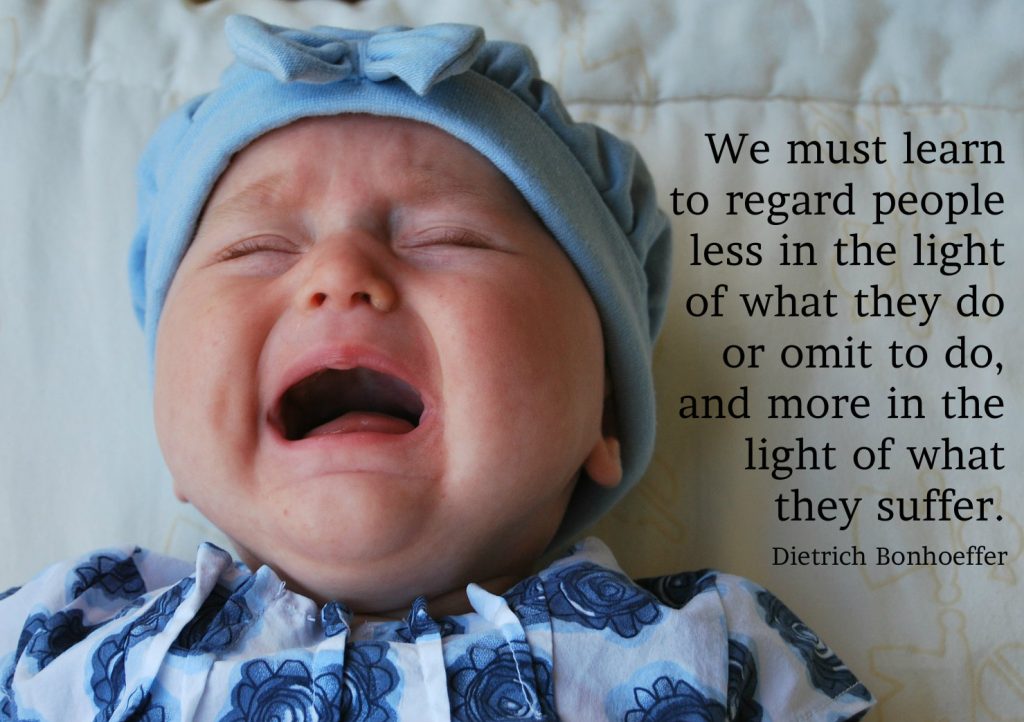Question: What does a relationship therapist do when she is on maternity leave?
Answer: She takes her baby to volunteer at an elementary school to help youngsters learn about empathy and emotions!
Over the last 10 months I have been taking my daughter to visit a grade 4-5 split classroom in the Seine River School Division as part of the Roots of Empathy program.
The program is designed to have young children consider the perspectives and experiences of another person, who cannot yet express themselves, and use those experiences to help them better understand their own inner world.
The program facilitator asked questions like:
- What does it mean when baby is crying?
- What is she trying to tell us?
- What would it be like if your (tummy, gums, finger) hurt and you couldn’t make it stop?
- Have you ever experienced hurt and not known how to ask for help?
- What makes you feel better when you’re sad?
- Who do you turn to?
And there was a focus on the attachment that develops between (in my case) mother and child. My responses to my daughter’s needs (picking her up if she was crying, giving her a snack if she was hungry, bringing a toy closer so she could look at it) were highlighted regularly.
Things that I was doing automatically, without thinking, were being discussed as meaningful and important.
On days when I was sleep deprived and doubting my skills and abilities as a mother, that validation was everything.
What did I take away from this experience?
First, it was a beautiful reminder that we are wired for connection.
My daughter started as a stranger to these kids, and in only 10 visits (of about 30 minutes long each) the kids became so attached they teared up when they found out our visits were coming to an end. They paid so much attention to this little person I helped to bring into this world.
The students asked questions, they noticed when her hair got longer, when she developed more strength in her neck, when she smiled, when she could pick up a toy for the first time. They wrote her poems, gave her warm smiles, and sang her songs.
Simply put, they cared about her and they showed it.
Second, it was a very warm, accepting and understanding environment.
If my daughter was having a tough day – it was okay, because we are allowed to have tough days.
If she was tired – it was okay, because we are allowed to be tired.
If she didn’t like a game or a certain toy or a certain song – it was okay, because we are allowed to have preferences and we don’t have to like something just because someone is hoping we like it.
Don’t we all need to be reminded of the permission to feel what we are feeling a little more often? Click To Tweet
That we can just be accepted for who we are?
And that if someone is behaving in a certain (perhaps unpleasant or difficult) way, it’s for a reason? That it must make sense, even if we can’t figure out that reason immediately?

As therapists, we specialize in empathy. We ask questions to better understand the inner worlds of our clients. We know that our clients are behaving in ways that make sense for some reason or another and our job is to understand those reasons.
But outside of therapy we don’t always get that same understanding and compassion.
If I could live my life in a Roots of Empathy class, I would. 🙂
But living back in the “real world” I think perhaps there is an invitation to bring the same level of curiosity, understanding and empathy we naturally do with babies and extend it to the people in our lives.






Write a Comment